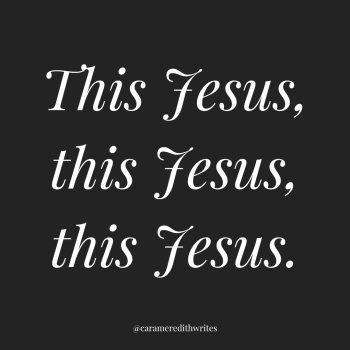Are the teachings and ruminations of John Wesley relevant to today’s society? They were thought of over 200 years ago. How is 18th Century England and Europe like 21st century America and Europe? What can we learn from these old teachings?
I came to the United Methodist Church in 1997 to pursue ministry and would attend seminary in 2001 – 2004 to be trained as a minister. While I have not always agreed with the UMC, I still believe in the connection and feel that the ideas that the Weseley brothers and the Wesleyan movement espoused still hold relevance to our world today. In this post, I want to explore the relevance Methodism has for the 21st Century.
John Wesley
John Wesley was born in 1703 and died in 1791. He was an English cleric, theologian and evangelist who is credited with creating a revivalist movement within the Church of England known as Methodism. The societies that he created were the catalyst for major social reforms in England at that time. Methodism in many forms continues to flourish today.
Wesley was an important figure in 18th century England. There are a lot of parallels to today. “At the beginning of the 18th century, England was mired in immense spiritual darkness and a moral quagmire. Deism was rampant, and a bland, philosophical morality was standard fare in the churches.” (Foster)
The movement Wesley created was part of a larger socio-religious movement in the 18th century known as the Great Awakening. The Great Awakening was an extended historical period that included countless evangelical movements that challenged traditional ideologies of the 17th and 18th century church and became a religious battleground of competing religious ideas and mass conversion. It is felt that we are in time of great awakening currently with instead of mass conversions, we have a mass exodus. It is felt that Wesley’s ideas and others from this time can better inform our 21st century church moving forward.
Wesley’s Radical Approach
Prevenient grace was the theological underpinning of Wesley’s belief that all persons were capable of being saved by faith in Christ. Unlike the Calvinists of his day, Wesley did not believe in predestination, that is, that some persons had been elected by God for salvation and others for damnation. He understood that Christian orthodoxy insisted that salvation was only possible by the sovereign grace of God. He expressed his understanding of humanity’s relationship to God as utter dependence upon God’s grace. God was at work to enable all people to be capable of coming to faith by empowering humans to have actual existential freedom of response to God.
A Social Justice Movement
As I will mention later, Wesley’s movement had a meteoric impact on social welfare in England and later American and other countries abroad. Field (2015) offers this commentary on Wesley’s holiness:
The goal is that the person would live a life that fulfils the commands to love God and one’s neighbor. He proposed: ‘What is holiness? Is it not, essentially love? The love of God and of all mankind? Love producing “bowels of mercies, humbleness of mind, meekness, gentleness, long suffering”? . . . Love is holiness wherever it exists.’ 6 In another context he stated, ‘Love is the sum of Christian sanctification.’ 7 Hence Christian perfection is nothing higher and nothing lower than this the pure love of God and man – the loving God with all our heart and soul, and our neighbour as ourselves. It is love governing the heart and the life, running through all our tempers, words and actions.
Relevance to Today
We are a world divided in many ways. According to Wesley, the mission of Methodism was “To reform the nation, and in particular the Church, to spread scriptural holiness over the land.’ In Wesley’s understanding, Methodism’s mission was the formation of holy people whose presence and praxis would reform the Church and society. The gospel that Wesley proclaimed was that God, in love, not only desired to forgive people but also to deliver them from the power of sin and transform them by the Spirit.” (Field, 2015)
As we have watched the Methodist Church again tear itself apart, we see in this microcosm a representation of a wider societal problem. Instead of living out the mission of love for each other, we instead focus on the love for ourselves. I find that the Buddhists make the point of being fairly plain, live in such a way as to reduce the suffering of all sentient beings. Jesus would follow this up a thousand years later by saying that we need to love others as we love ourselves. Love is our focus and must be our focus.
Wesley’s movement focused on getting the message to the marginalized, in the fields, in the mines, in the pubs, on the frontier. In America, Methodism was credited for helping tame the frontier. In England, it made a dent on the gin epidemic and created a several generations of social reform.
Reference:
Field, D. N. (2015). Holiness, social justice and the mission of the Church: John Wesley’s insights in contemporary context. Holiness: The Journal of Wesley House Cambridge, 1(2), 177-198. https://www.wesley.cam.ac.uk/wp-content/uploads/2015/10/03-field.pdf
(n.d.). John Wesley and The First Great Awakening of the 18 Century. Foster. Retrieved June 26, 2024, from https://www.fosterhistory.com/en/john-wesley-and-the-first-great-awakening/
















